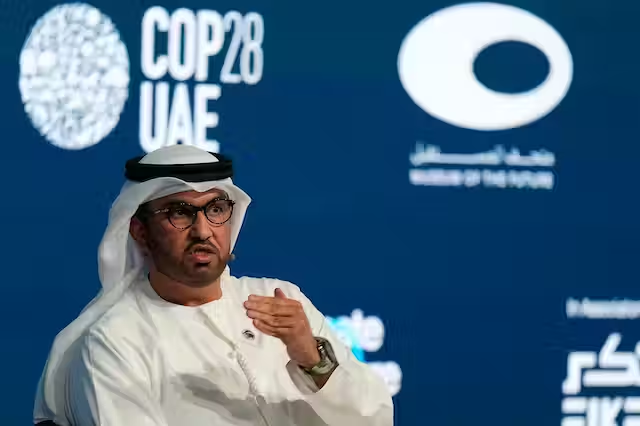Daily News
Historic Fossil Fuel Agreement Concludes COP28 Summit

The COP28 climate discussions in Dubai concluded with an unprecedented commitment to transition away from all fossil fuels. The president of this year’s UN-sponsored summit, Sultan Al Jaber of the UAE, successfully brokered an agreement that garnered support from the US and the European Union in advocating for a substantial reduction in fossil fuel usage. Importantly, this agreement maintained the cooperation of oil-producing nations like Saudi Arabia.
The accord urges countries to shift their energy systems away from fossil fuels. Notably, nations are encouraged to contribute to a collective global transition effort rather than being mandated to make the shift independently.
Al Jaber, also the CEO of Abu Dhabi National Oil Co., expressed optimism, stating, “together we have confronted the realities and sent the world in the right direction.” The deal, confirmed a day later than scheduled, received applause and cheers from delegates.
Although the agreement falls short of the complete phase-out desired by many countries, it marks a significant departure from previous COP texts by explicitly mentioning the move away from oil and gas—the foundational fuels of the global economy for decades.
Push forward with your own transition from fossil fuels with the Renewable Energy Institute’s Net Zero Consultant Expert Certificate. Covering areas such as the global energy transition, benefits of alternatives fuels and ways to implement green energy alternatives to every-day technologies. The REI provides the highest standard of training from expert lecturers within the industry – enrol today and begin your transition to net zero.
The pace at which this transition becomes a reality hinge not on diplomatic negotiations but on the actions of investors, consumers and national governments. Despite a previous commitment to phase down coal at the previous COP in Glasgow, consumption has risen and achieving the Paris Agreement’s 1.5°C target remains unlikely.
Nonetheless, the decision serves as a crucial milestone in the global shift towards a low-carbon energy system. The text outlines agreements to triple the deployment of renewable power and double the rate of efficiency gains by the end of the decade. Additionally, an earlier COP28 agreement established a hard-fought fund to address the losses and damages of climate change.
Emphasising the importance of implementation, Al Jaber stated, “an agreement is only as good as its implementation. We are what we do, not what we say.” The language in COP28 advocating a decline in fossil fuel use is expected to send a signal to investors, altering the way they assess the risk of such ventures.
Al Jaber’s presidency aimed to integrate the oil and gas industry into the COP process, with more representatives from fossil fuel companies than ever before. He facilitated a pact among over 50 companies to reduce emissions from their operations, although it did not address production levels. Notably, Saudi Arabia opposed any attempt to include a fossil fuel phase-out in the text, leading to a watered-down language that reflected their concerns but left the coalition of oil producers too isolated to resist.
